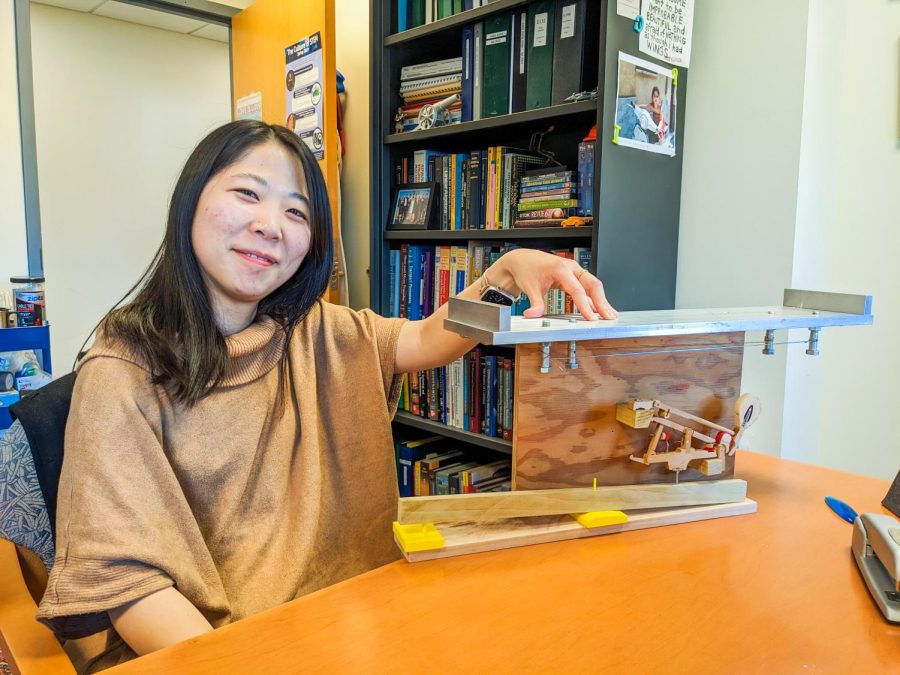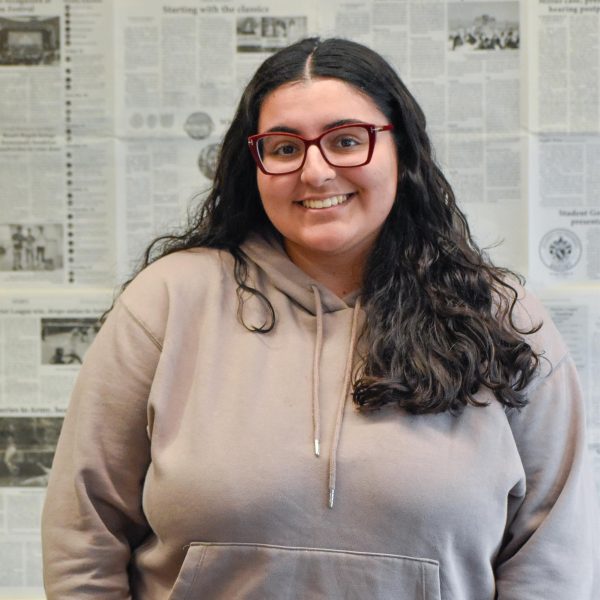Most Leopards have likely heard tales of seniors working on their honors theses, but what exactly is a thesis? And what is the process of creating one?
Many seniors take on the task of thesis development on a wide variety of topics and academic interests within their majors.
Josh Hale ‘23, whose thesis centers on the regulation of sex work in colonial India, has always had the desire to write a history thesis. Hale cites his work doing EXCEL research with history professor Caroline Séquin, as well as taking a seminar on global South Asia with history professor Hafsa Kanjwal — who served as his thesis advisor — as his sources of inspiration for developing the thesis.
“I did an EXCEL scholarship with Professor Séquin, and her focus and expertise is in prostitution regulation in the French Empire, so that was when I was first exposed to the topic,” Hale said.
Hale feels that his thesis advisor was an essential part of forming the complex ideas present in his thesis.
“I think [Professor Kanjwal] really pushed me to go further with my analysis and kind of think about how things interrelate,” Hale said.
Manaka Gomi ‘23 and her work are an example of how theses can be both creative and interdisciplinary. Her thesis, based on her mechanical engineering and music dual degree, focuses on creating an instrument rooted in the idea of a piano designed for women as opposed to men.
“The piano keyboard is standardized … It’s not very inclusive because people who were involved in designing [it] were all men at that time, so it works better for men’s hands,” Gomi said. “I’m making the keyboard more like an arc shape, so the keys are closer at the inner circle, but it’s farther apart at the outer circle.”
Gomi appreciates getting to apply the skills she has garnered from studying in both of her majors.
“Because it’s an interdisciplinary thesis I get to use both music and mechanical engineering knowledge,” Gomi said. “Because when I say, ‘Oh, I’m a mechanical engineering [and] music major,’ people are like ‘Oh, that’s so different,’ but then in this project, I’m like ‘I want to use both of them.'”
For Sakib Shahriar Arnob ‘23, his Bangladeshi identity and academic interests were used as inspirations for a thesis.
His thesis, which is about refugee and labor economics through the lens of the pandemic’s effect on the economies of Bangladeshi refugee communities, combines both traditional economics data-based research with real-life experiences visiting the communities that he is studying.
“It’s very important to find a good dataset that you can analyze and run regressions on. There’s qualitative aspects as well … I went to the refugee camps myself just to understand what the data is saying makes sense in real life,” Shahriar Arnob said.
Shahriar Arnob also feels that writing a thesis is a useful way for students to gauge if academia as a field is something they want to pursue in the future.
“I’m going to work in the industry in finance, but I still wanted to see if academia is something I would pursue in real life because thesis gives a sense of how the process works in academia,” he said.
Both Gomi and Hale feel that thesis writing is beneficial to fostering academic development and creativity. Gomi appreciates the flexibility that her majors and advisors have provided throughout the process.
“I think that’s very unique to Lafayette,” Gomi said. “I think that’s really rewarding for me.”
“[Something] I enjoy about the thesis is that you get so many opportunities to go deep with the material you’re studying,” Hale said.




















































































































